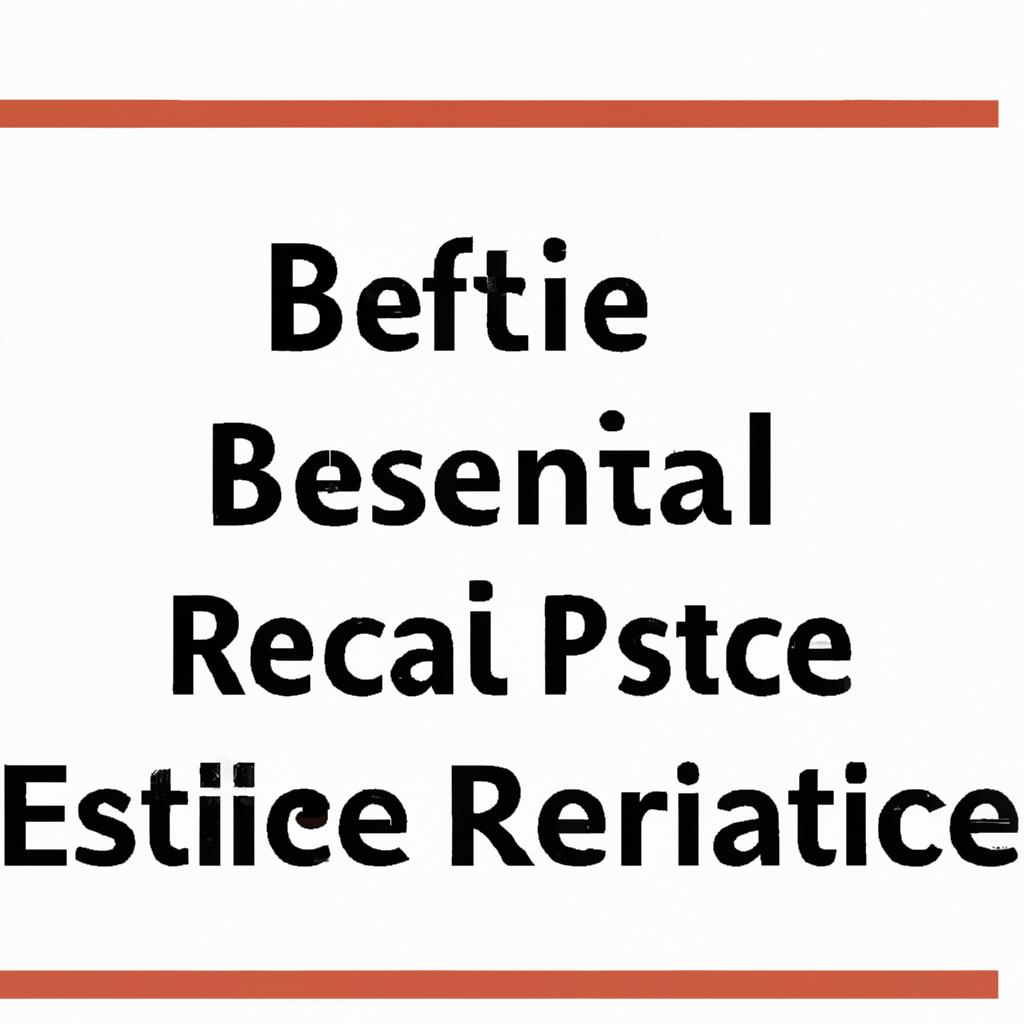As seasoned legal experts in estate planning, probate, elder law, Wills, and trusts, Morgan Legal Group is well-versed in navigating the intricate realm of real estate beneficiaries. In this article, we delve into the crucial role of real estate beneficiaries, shedding light on their rights, responsibilities, and the intricate legal framework that governs their inheritance. From unraveling complex estate plans to safeguarding the interests of beneficiaries, our team is dedicated to providing unparalleled guidance and expertise in matters concerning real estate beneficiaries.
Understanding Real Estate Beneficiaries in Estate Planning
When it comes to estate planning, understanding real estate beneficiaries is crucial for ensuring that your assets are distributed according to your wishes. Real estate beneficiaries are individuals or entities who are designated to inherit a specific piece of real property upon the death of the property owner. It is essential to clearly identify and designate these beneficiaries in your estate plan to avoid any confusion or disputes among heirs.
Real estate beneficiaries can be designated in various legal documents, such as Wills, trusts, or deeds. These beneficiaries have specific rights and responsibilities when it comes to inheriting and managing the real property they are entitled to. It is important to work with an experienced estate planning attorney to ensure that your real estate beneficiaries are properly identified and that your wishes are carried out effectively.

Key Considerations When Choosing Real Estate Beneficiaries
When selecting beneficiaries for your real estate holdings, it is crucial to consider various factors to ensure your wishes are carried out accurately. Here are some key considerations to keep in mind:
- Familial Relationships: Consider the dynamics and relationships within your family to avoid potential conflicts among beneficiaries.
- Financial Stability: Evaluate the financial stability of potential beneficiaries to ensure that they can effectively manage the real estate assets they will inherit.
- Age and Responsibility: Take into account the age and level of responsibility of beneficiaries, as younger individuals may require additional safeguards in place to protect their inheritance.
- Location: Consider the location of beneficiaries in relation to the real estate properties to assess their ability to manage and maintain the assets effectively.

How to Ensure a Smooth Transition for Real Estate Beneficiaries
When it comes to ensuring a smooth transition for real estate beneficiaries, there are several key steps that can be taken to minimize any potential challenges or disputes. First and foremost, it is essential to have a clear and comprehensive estate plan in place that outlines the distribution of real estate assets. This plan should be drafted by a qualified attorney who specializes in estate planning to ensure that all legal requirements are met and that the wishes of the deceased are carried out accurately.
Additionally, communication is key in a situation involving real estate beneficiaries. Keeping beneficiaries informed of the process, timelines, and any potential issues that may arise can help prevent misunderstandings and conflicts down the line. Finally, working with a knowledgeable probate attorney who can guide beneficiaries through the legal process and answer any questions or concerns they may have can help ensure a smooth and efficient transition of real estate assets.

Best Practices for Real Estate Beneficiary Designations
In real estate beneficiary designations, it is crucial to carefully consider the following best practices to ensure a smooth transfer of assets upon your passing. First and foremost, always update your beneficiary designations to reflect your current wishes. Failure to do so could result in unintended consequences and potential legal challenges for your loved ones.
Additionally, it is recommended to review and update your beneficiary designations regularly, especially after major life events such as marriage, divorce, or the birth of a child. By keeping your beneficiary designations current, you can avoid any confusion or disputes over who should inherit your real estate assets. Remember, proper estate planning is essential to protect your loved ones and ensure your wishes are carried out effectively.
Q&A
Q: What is a real estate beneficiary?
A: A real estate beneficiary is a person or entity designated to inherit a property upon the death of the current owner.
Q: How does someone become a real estate beneficiary?
A: To become a real estate beneficiary, a person must be named as such in a legal document, such as a will or a trust.
Q: Can a real estate beneficiary be changed?
A: Yes, a real estate beneficiary can be changed by the owner of the property at any time prior to their death by updating the relevant legal documents.
Q: What happens to the property if there is no real estate beneficiary named?
A: If there is no real estate beneficiary named, the property will typically be distributed according to state laws of inheritance.
Q: Are there any tax implications for being a real estate beneficiary?
A: Inheritances, including real estate, may be subject to estate taxes, but the specific implications will depend on various factors such as the value of the property and the relationship between the beneficiary and the deceased.
Q: Can a real estate beneficiary sell the property they inherit?
A: Yes, a real estate beneficiary has the legal right to sell the property they inherit, although they may need to follow certain procedures outlined in the legal documents or by state laws.
In Retrospect
In conclusion, understanding the role of a real estate beneficiary is essential for anyone involved in estate planning or property ownership. Whether you are considering creating a trust or simply updating your beneficiaries, knowing who will inherit your property can provide peace of mind and ensure your assets are passed on according to your wishes. By staying informed and seeking professional guidance, you can navigate the complexities of real estate beneficiaries with confidence. Thank you for reading.


